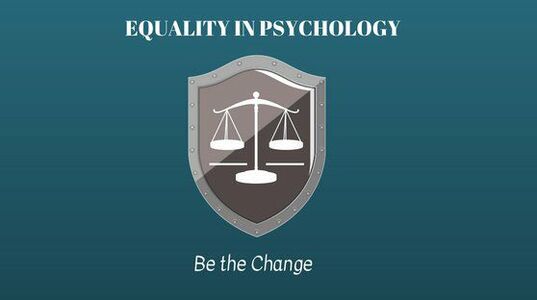500 signatures reached
To: The National Executive of the APS/ Frances Mirabelli
Australian Psychological Society (APS) – We deserve transparency and advocacy from our peak body!

As psychologists, APS members and the general public, we have a right to know what recommendations the APS has made to the government in relation to the current MBS Medicare Review and the future of the Better Access program. The APS is touted as the ‘peak body’ for psychology in Australia and the government follows APS recommendations when making and reviewing policies. We represent a Facebook group called ‘Australian Psychologists’ that contains over 1500 psychologists with a diversity of qualifications from all areas of psychology. Many of our group members (who are current APS members) have requested copies of APS submissions over the last two months but have been denied or ignored.
We are aware that the submission by the College of Counselling Psychology has been released via their public Facebook page, however no other submissions from any of the other eight colleges or APS executive have been released.
The APS states that its conduct, activities and decision making are guided by these values:
• Proactive and responsive
• Making a difference
• Integrity and professionalism
• Respectful relationships
Please respect these values and release all submissions made to the current MBS review by the APS (including colleges and branches). Members pay $640 per year to belong to the APS and deserve to know what has been submitted on their behalf.
We are aware that the submission by the College of Counselling Psychology has been released via their public Facebook page, however no other submissions from any of the other eight colleges or APS executive have been released.
The APS states that its conduct, activities and decision making are guided by these values:
• Proactive and responsive
• Making a difference
• Integrity and professionalism
• Respectful relationships
Please respect these values and release all submissions made to the current MBS review by the APS (including colleges and branches). Members pay $640 per year to belong to the APS and deserve to know what has been submitted on their behalf.
Why is this important?
As psychologists, our livelihoods and the welfare of our clients depends on the Australian public's access to affordable psychological services. Currently, our clients receive a rebate of $84.80, while clinical psychologists attract a rebate of $124.50 for providing the same 50-minute session. Many non-clinical psychologists can’t maintain their practices due to this lower rebate and due to financial pressure, have to pass on some out-of-pocket costs to their clients.
There are 29 213 registered psychologists in Australia with only 8298 of these holding endorsement as clinical psychologists (28%) (Psychology Board of Australia, 31 March 2018).
The APS is split into a number of colleges representing each endorsed area of practice. We are concerned as the submission by the APS College of Counselling Psychology, advocates to maintain the current unfair and unfounded two-tier rebate system with their own members placed on their higher tier alongside their clinical colleagues. This means the majority of Australians will still need to pay substantial gap fees to see their psychologists. Polls conducted in our Facebook group suggest that more non-clinical psychologists could fully bulk-bill their clients if their rebate was the same as their clinical colleagues.
Of the 9 Director/Psychologist positions on the APS Board, 6 (66%) hold endorsement as clinical psychologists, while less than 30% of psychologists hold clinical endorsement. The representativeness of the APS Board has been rightfully questioned due to these figures.
The Australian Clinical Psychology Association (ACPA) has recommended to the MBS review to ‘cash’ the majority of psychologists out of Medicare and therefore prevent our clients from receiving any Medicare rebate for our services. How could 8298 clinical psychologists (who geographically congregate around the capital cities) service the Australian population? To add further insult, we discover that the author of the ACPA submission recommending the removal of rebates for non-clinical psychologists and their clients (https://acpa.org.au/submission-to-medicare-review/) is granted a place on the Medicare review committee. With submissions like these being made to the MBS review, non-clinical psychologists need representation and advocacy from the APS as their peak body.
ACPA have spread false information and written multiple submissions to government departments and Medicare, denigrating all non-clinical psychologists. Unfortunately, the APS has not spoken out or reprimanded those who have denigrated the reputations of around 70% of their membership base.
Many clinical psychologists hold the same level of training and qualifications as ‘generalist’ or ‘registered’ psychologists. In fact, a large portion of ‘generalist‘ psychologists hold postgraduate qualifications such as masters, PhDs or specific training in particular techniques such as EMDR. It is reported by the Australian Clinical Psychology Association (ACPA) that ‘more than half of those clinical psychologists currently endorsed by the Psychology Board of Australia do not have qualifications in clinical psychology…’ (source: https://docplayer.net/7212127-Skilled-occupation-list-sol-2015-16.html).
Psychologists cannot be considered better trained or skilled by virtue of holding the title ‘clinical psychologist’. The quality, skills and knowledge of a psychologist cannot be deemed by endorsement status alone.
All registered psychologists can diagnose, assess and treat clients, regardless of whether they are clinically endorsed or not. We also have nine areas of endorsement in Australia (health, forensic, counselling, educational/developmental etc.), however only clinically endorsed psychologists' services receive the higher rebate.
Furthermore, there is no evidence to suggest that any type of psychologist is better or more effective than any other type of psychologist. A notable research project commissioned by the Australian Government (Pirkis et al, 2011) demonstrated clearly that psychologists treating mental illness across both tiers of Medicare Better Access produced equivalently strong treatment outcomes (as measured by the K-10 and DASS pre-post treatment) for mild, moderate and severe cases of mental illness. This research demonstrates clearly that there is no difference in treatment outcomes when comparing clinical psychologists treating under tier one of Medicare Better Access with the treatment outcomes of all other registered psychologists treating under tier two of Medicare Better Access (Pirkis et al, 2011). Pirkis, Ftanou, Williamson, Machlin, Spittal & Bassilios (2011). Australia's Better Access initiative: An evaluation. Australian and New Zealand Journal of Psychiatry, 45:726–739
Consumers of psychology services should be able to receive the same rebate to see whichever psychologist best meets their needs and geographical location.
There are 29 213 registered psychologists in Australia with only 8298 of these holding endorsement as clinical psychologists (28%) (Psychology Board of Australia, 31 March 2018).
The APS is split into a number of colleges representing each endorsed area of practice. We are concerned as the submission by the APS College of Counselling Psychology, advocates to maintain the current unfair and unfounded two-tier rebate system with their own members placed on their higher tier alongside their clinical colleagues. This means the majority of Australians will still need to pay substantial gap fees to see their psychologists. Polls conducted in our Facebook group suggest that more non-clinical psychologists could fully bulk-bill their clients if their rebate was the same as their clinical colleagues.
Of the 9 Director/Psychologist positions on the APS Board, 6 (66%) hold endorsement as clinical psychologists, while less than 30% of psychologists hold clinical endorsement. The representativeness of the APS Board has been rightfully questioned due to these figures.
The Australian Clinical Psychology Association (ACPA) has recommended to the MBS review to ‘cash’ the majority of psychologists out of Medicare and therefore prevent our clients from receiving any Medicare rebate for our services. How could 8298 clinical psychologists (who geographically congregate around the capital cities) service the Australian population? To add further insult, we discover that the author of the ACPA submission recommending the removal of rebates for non-clinical psychologists and their clients (https://acpa.org.au/submission-to-medicare-review/) is granted a place on the Medicare review committee. With submissions like these being made to the MBS review, non-clinical psychologists need representation and advocacy from the APS as their peak body.
ACPA have spread false information and written multiple submissions to government departments and Medicare, denigrating all non-clinical psychologists. Unfortunately, the APS has not spoken out or reprimanded those who have denigrated the reputations of around 70% of their membership base.
Many clinical psychologists hold the same level of training and qualifications as ‘generalist’ or ‘registered’ psychologists. In fact, a large portion of ‘generalist‘ psychologists hold postgraduate qualifications such as masters, PhDs or specific training in particular techniques such as EMDR. It is reported by the Australian Clinical Psychology Association (ACPA) that ‘more than half of those clinical psychologists currently endorsed by the Psychology Board of Australia do not have qualifications in clinical psychology…’ (source: https://docplayer.net/7212127-Skilled-occupation-list-sol-2015-16.html).
Psychologists cannot be considered better trained or skilled by virtue of holding the title ‘clinical psychologist’. The quality, skills and knowledge of a psychologist cannot be deemed by endorsement status alone.
All registered psychologists can diagnose, assess and treat clients, regardless of whether they are clinically endorsed or not. We also have nine areas of endorsement in Australia (health, forensic, counselling, educational/developmental etc.), however only clinically endorsed psychologists' services receive the higher rebate.
Furthermore, there is no evidence to suggest that any type of psychologist is better or more effective than any other type of psychologist. A notable research project commissioned by the Australian Government (Pirkis et al, 2011) demonstrated clearly that psychologists treating mental illness across both tiers of Medicare Better Access produced equivalently strong treatment outcomes (as measured by the K-10 and DASS pre-post treatment) for mild, moderate and severe cases of mental illness. This research demonstrates clearly that there is no difference in treatment outcomes when comparing clinical psychologists treating under tier one of Medicare Better Access with the treatment outcomes of all other registered psychologists treating under tier two of Medicare Better Access (Pirkis et al, 2011). Pirkis, Ftanou, Williamson, Machlin, Spittal & Bassilios (2011). Australia's Better Access initiative: An evaluation. Australian and New Zealand Journal of Psychiatry, 45:726–739
Consumers of psychology services should be able to receive the same rebate to see whichever psychologist best meets their needs and geographical location.
How it will be delivered
Email the signatures to the APS
